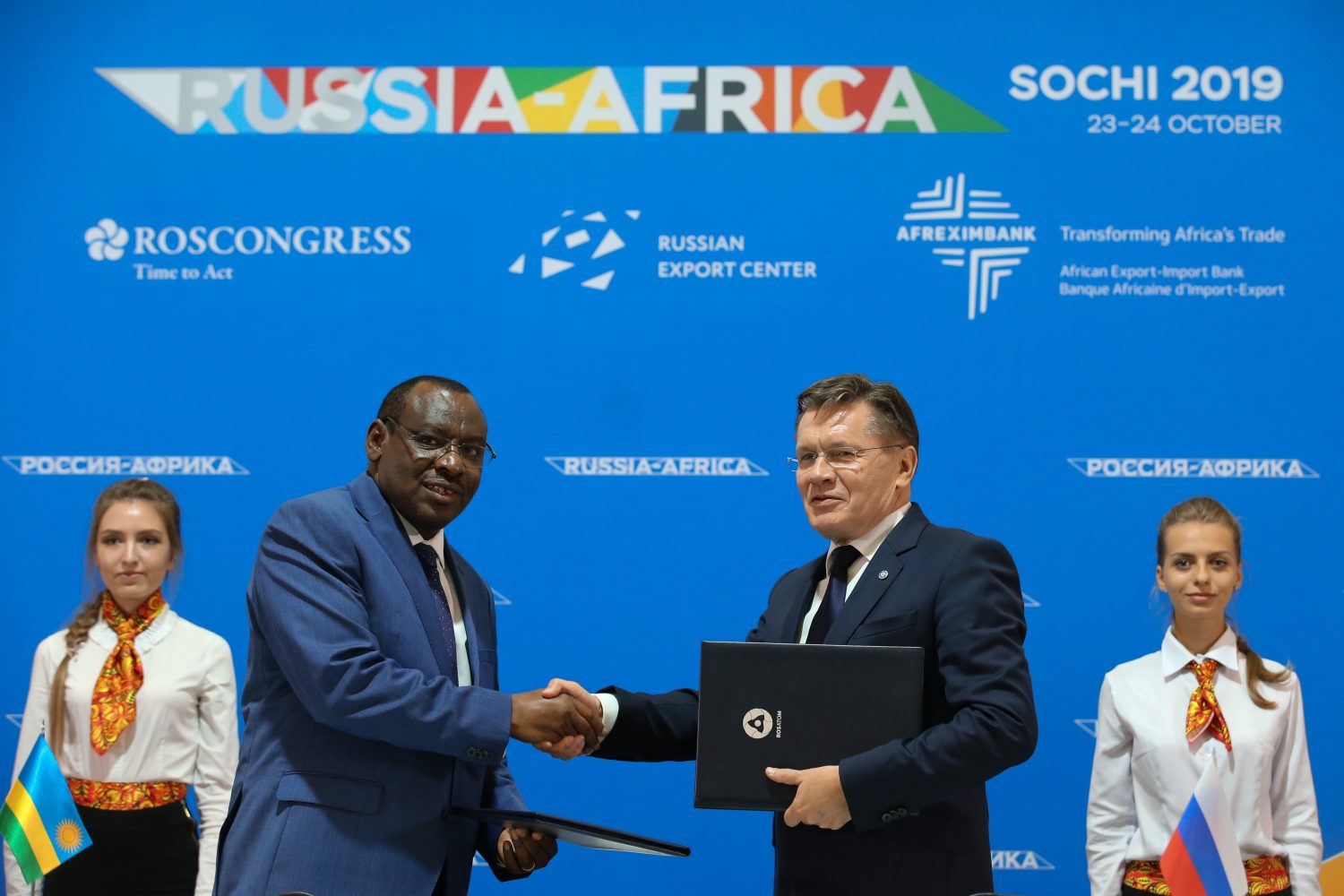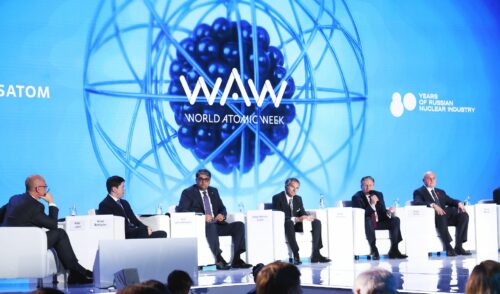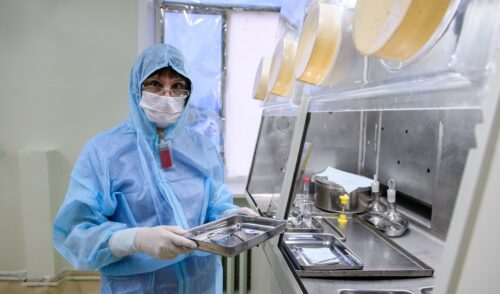
Atoms for Africa
back to contentsThe agreements show that the continent is an important market where Rosatom works persistently to deliver its projects. Rosatom’s network of partnerships cover 16 countries, or almost a third of the states on the African continent. The total number of African countries in the focus of Rosatom’s attention reaches 20.
Fighting hunger and diseases with nuclear
The signing of an agreement with Rwanda to construct a nuclear science and technology center (NSTC) was the central event of the summit for Rosatom. The agreement provides for the center to be built around a multipurpose 10 MW pressurized water reactor. The NSTC will feature laboratories and equipment to conduct scientific research, including in radiation biology. It can be used to fabricate radioactive isotopes for diagnosis and treatment of cancer diseases.
The NSTC could also be fitted out with irradiation equipment to treat grain, vegetables and other products. Irradiation kills pathogens and extends shelf life of the product without affecting its properties. Thus, irradiation treatment facilitates export development and domestic consumption. According to the World Bank, 53% of Rwanda population lives on less than USD 2 per day. Rosatom is developing a similar NSTC project in Zambia.
Forward thinking
Alexey Likhachev also signed an agreement on cooperation between Russia and Ethiopia in the peaceful uses of nuclear energy. On the Ethiopian part, the document was signed by Getahun Mekuria Kuma, Minister of Innovation and Technology of Ethiopia. The agreement sets a legal framework for the two countries to hold a constructive dialogue in the nuclear power sector. It also lays a foundation for the parties to start implementing specific projects.
Supporting development
Speaking at the Contribution of Nuclear Technologies to the Development of Africa plenary session, Likhachev stressed that nuclear helps solving social problems faced by African countries. Availability and reliability of power supply is a prerequisite of sustainable development. The problem is a pressing issue for Africa: less than a half of the population in 24 countries have access to electricity.

According to Alexey Likhachev, nuclear energy is a driver of the national economy as every dollar invested in the infrastructure brings two dollars in contracts with local companies. These are not just words: in Egypt, cooperation with local suppliers and service providers is up and running. In early October, Cairo hosted the second forum for nuclear industry suppliers. The event was attended by around 600 representatives of Egyptian and international companies specializing in construction, mechanical engineering and equipment supplies. Our readers know that Rosatom is going to build Egypt’s first nuclear power plant near the town of El Dabaa in the Matrouh Governorate. The plant will have four Generation III+ VVER-type reactors with the power capacity of 1.2 GW each (VVER stands for the Russian water-water power reactor).
“We can make a quantum leap in Africa in terms of nuclear technology development and application within the next few years,” Rosatom’s Director General said. These words were heard by representatives of Africa’s national governments making their first steps in the field of nuclear, including Roland Msiska, Head of the Zambia Atomic Agency, Claver Gatete, Minister of Infrastructure of Rwanda, and Getahun Mekuria Kuma, Minister of Innovation and Technology of Ethiopia.
Educating people
Development nuclear technology is not possible without qualified personnel, which Africa is short of. This fact was stressed by Evgeny Pakermanov, President of Rusatom Overseas. The problem is solvable, though, he said speaking at the summit, “We are ready to provide comprehensive support to our African partners, look jointly for solutions, and contribute to the step-by-step development of national nuclear power programs,” he assured.
One of the ways to overcome the shortage of top-quality education was proposed by Rosatom right at the summit. The Russian state nuclear corporation signed a cooperation agreement with the Peoples’ Friendship University of Russia (PFUR). Rosatom is interested in making nuclear majors in Russian universities popular among African students. “Cooperation between Rosatom and the Peoples’ Friendship University of Russia promotes academic partnerships with African universities and raises interest in nuclear-related university majors and Russian technologies in Africa,” Vladimir Filippov, PFUR rector said.




